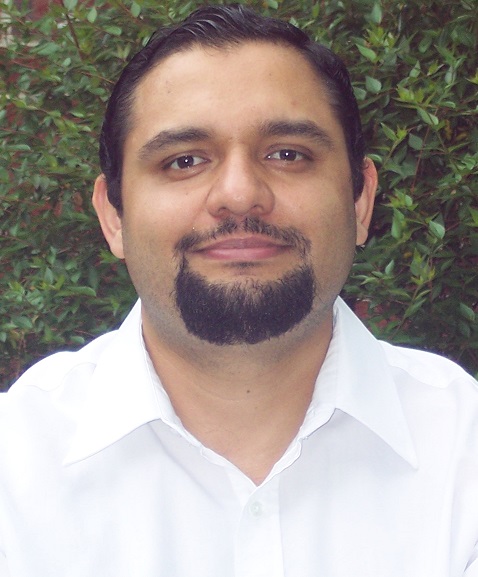 A UNC Charlotte research team led by Dr. Juan Vivero-Escoto, Associate Professor of Chemistry, recently received a $100,000 grant from the National Science Foundation (NSF) to improve delivery and impact of cancer treatments through nanoscience.
A UNC Charlotte research team led by Dr. Juan Vivero-Escoto, Associate Professor of Chemistry, recently received a $100,000 grant from the National Science Foundation (NSF) to improve delivery and impact of cancer treatments through nanoscience.
The research project, “Biodegradable Hybrid Nanoparticles Containing Photosensitizing Agents,” is a continuation of a joint project with researchers in Brazil that started in 2016 with support from UNC Charlotte’s Graduate School and the State of São Paulo Research Foundation (FAPESP). The program, called SPRINT (São Paulo Researchers in International Collaboration), provides opportunities for faculty from the two countries to form research partnerships.
“The SPRINT program has been instrumental to the progress of this research,” Vivero-Escoto said. “Our collaboration with our colleagues in Brazil has been quite productive.”
The latest round of funding comes from the NSF’s EAGER program (Early-Concept Grants for Exploratory Research) designed to enable research projects that focus on ideas that are more risky, but offer what the NSF calls “potentially transformative” breakthroughs.
The focus of Vivero-Escoto’s research team is on developing biodegradable nanoparticles that can deliver higher, longer-lasting doses of treatment to cancer cells, then break down and dissipate without the harsh side effects commonly associated with cancer treatments.
“Our team is testing the use of silica particles that stay in the body longer and deliver drugs to a tumor more effectively,” Dr. Vivero-Escoto said. “A principle challenge is finding the right combination of these materials that will degrade quickly enough to prevent them from becoming toxic.”
Think Big. Do Nano.
Perhaps as important as the research Vivero-Escoto’s team is conducting is the message they share with students in traditionally underrepresented, primarily minority communities. Both professor and students work regularly with Charlotte-area students from kindergarten through high school, delivering presentations, workshops and experimentation to expose more children to nanoscience an assure them that anyone can become a scientist and achieve high goals.
“Our duty as researchers is not only to promote research and education,” Vivero-Escoto said, “but to be a role model for future generations. The US must grow the number of people with knowledge of nanoscience in our workforce to compete worldwide.”
